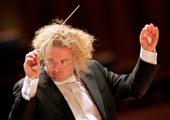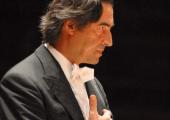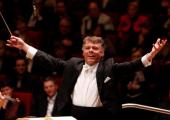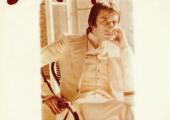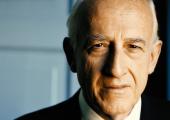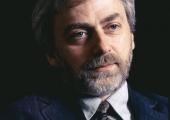LPO, Jurowski, Royal Festival Hall
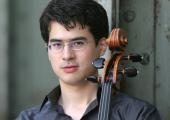
Searing Prokofiev scores over his worthy but turgid composer-friend Myaskovsky
For many of us, this was bound to be an emotional evening. Noëlle Mann, doyenne of all things Prokofievian on the editorial, archival, teaching and performing fronts, died peacefully at home last Friday, and it was to her that Vladimir Jurowski dedicated a typically bold programme of Prokofiev's late epic for cello and orchestra, the Symphony-Concerto, and a big but rather less focused symphony by his closest composer-friend Nikolay Myaskovsky. Perhaps it's presumptuous to speak for the departed; but I could hear Noëlle responding vitally to her master's voice, applauding Jurowski for championing the lesser-known figure but sternly proclaiming the verdict shared by most of us: that while Prokofiev was touched by the divine spirit, poor, diligent Myaskovsky clearly wasn't.

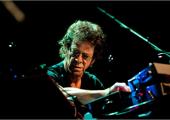
 Joanna Wos (left, no relation to Jonathan Ross) put in a stellar performance last night singing in Gorecki's Third Symphony at the Royal Festival Hall with the LPO, singing the part made famous on the million-selling recording by Dawn Upshaw. To get there, she drove for three days and nights from Poland arriving yesterday afternoon. What a trouper. It would be unfair to judge her against Upshaw in the circumstances. But I will. She didn't quite have Upshaw's power, but she was splendidly expressive. She even reminded me, strangely, at times of Victoria de los Angeles. And the LPO seemed slightly on automatic for the first section but then burst into life for the latter movements.
Joanna Wos (left, no relation to Jonathan Ross) put in a stellar performance last night singing in Gorecki's Third Symphony at the Royal Festival Hall with the LPO, singing the part made famous on the million-selling recording by Dawn Upshaw. To get there, she drove for three days and nights from Poland arriving yesterday afternoon. What a trouper. It would be unfair to judge her against Upshaw in the circumstances. But I will. She didn't quite have Upshaw's power, but she was splendidly expressive. She even reminded me, strangely, at times of Victoria de los Angeles. And the LPO seemed slightly on automatic for the first section but then burst into life for the latter movements.